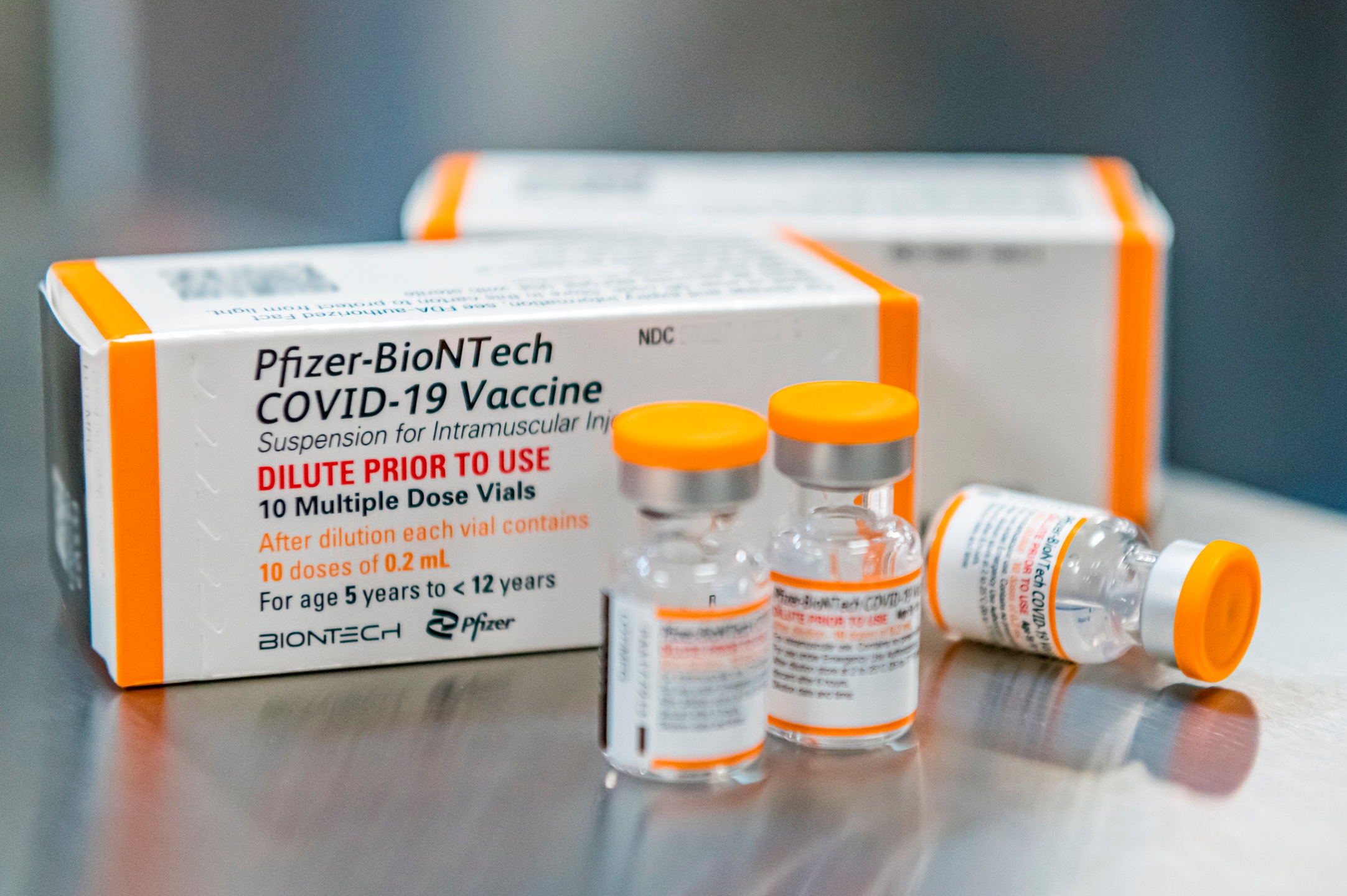What kids are now eligible for the COVID-19 vaccine?
In Canada, the Pfizer-BioNTech vaccine has now been approved for children aged 5- 11 years old.
Does the vaccine work in kids?
Yes- the efficacy (efficacy can be thought of as the effectiveness shown in a research trial) in the Pfizer trial was 90.7%. There were 2268 children included in the study, and of these 1517 were randomized to receive the vaccine. In total there were 16 cases of COVID-19 during the 2.3 month study period, and only 3 occurred in those who had received the vaccine.
What side effects does the vaccine have?
Similar to the side effects that those aged 12 and up might have gotten, children who get the COVID-19 vaccine might experience pain at the injection site, redness or swelling at the injection site, fever, fatigue, headaches, muscle or joint pain, or upset stomach. These symptoms are generally mild and improve in a few days. If needed, over the counter medications like acetaminophen or ibuprofen can be given to manage the symptoms.
How many doses do kids need?
Right now two doses are recommended, but we might learn more about the need for additional doses like the boosters currently recommended for those 18 and up six months after their second dose.
How many days or weeks after the first dose should my child get the second dose?
In First Nation communities we are recommending a dose interval of 21 days for children aged 5-11.
The recommended dose interval (time between doses) can range from 21 days to 8 weeks. In recommending the dose interval public health experts are trying to balance the benefits of receiving full protection at a shorter dose interval with the potential risks. The potential risks include a shorter duration of full immunity and a higher risk of the rare but serious side effect of myocarditis/ pericarditis.
In the study that was done, the children received their second dose 21 days after the first dose. In the United States, the recommendation is that this 21 day interval be followed. In Canada, the National Advisory Committee on Immunization has recommended that the interval be at least 8 weeks between the first and second dose.
In Manitoba, the recommendation for most children will be a dose interval of 8 weeks, but recognizes that for some individuals or in some communities a shorter dose interval may be appropriate if recommended by the health provider or relevant public health authority. MFNPRCT in collaboration with public health experts from FNIHB supports a recommended 21 day interval for children aged 5-11 living in First Nation communities.
Why is the shorter dose interval of 21 days recommended for children living in First Nation communities?
Throughout this pandemic we have seen that First Nations people are at higher risk of catching COVID-19 and experiencing severe outcomes. Although the risk of hospitalization is low in children, it is higher in the fourth wave compared to previous waves, and higher in First Nations children compared to other children.
The higher risk that First Nations people experience is largely due to factors like overcrowded housing. This overcrowded housing can really accelerate the spread of an outbreak as we repeatedly see most or all susceptible people in a house become COVID-19 positive after one person tests positive. Several community leaders in communities experiencing outbreaks have raised concerns about overcrowded classrooms as well, and made difficult decisions to close schools to try to reduce the transmission risks. Remote learning has been very challenging due to less access to technology at home and unreliable/ inaccessible internet.
We have seen the positive effects of a robust vaccine rollout in First Nation communities. In general there have been fewer outbreaks and they are shorter and easier to control. We see fewer severe outcomes compared to the second and third waves, and will continue to see this as more people get their boosters to maintain this high level of protection.
The benefits of children aged 5-11 achieving the full protection of the vaccine as soon as possible by using the shorter 21 day interval include:
- Protection from severe outcomes;
- Reduced number of people who are fully susceptible to COVID-19 which will break up transmission chains and reduce the risk of outbreaks;
- Reduced number of days missed from school due to isolating as either a case or a close contact;
- Reduced school closures as more and more kids are fully vaccinated so leaders feel more comfortable with keeping schools open even when there are sporadic cases in school- aged
There is a risk that this will result in immune protection that wanes sooner. We will continue to review the evidence about need for boosters in the pediatric population as time goes on to maintain full immune protection.
There is a potential risk that this might increase the likelihood of the rare side effect of myocarditis/ pericarditis. The risk of this (at most) is 1 in 10,000 and occurred mainly in male adolescents and young adults after their second dose of an mRNA vaccine (Pfizer or Moderna). The risk was lower in other population groups that received the vaccine. As of November 18th, 2.6 million doses of the Pfizer vaccine had been given to children in the US. To date no cases of myocarditis/ pericarditis have been detected. This risk is extremely low, and outweighed by the benefits of reaching full immune protection sooner. We will continue to monitor the safety data, particularly from the United States. If the risk is observed to be higher than this we might change our recommendation in the future.
Will my child need a booster?
There’s no answer to this question yet, but is seems likely. Currently boosters are only recommended in Manitoba for people 18 and up. However, we might start to see some countries adding boosters for younger ages. For example, Israel has just starting advising boosters for those aged 12 and up. We will continue to monitor the data and evidence in collaboration with our colleagues at Manitoba Health.
Where can I find more information?
The province has more information available about vaccines for young people available here: https://www.gov.mb.ca/covid19/vaccine/young-people.html.





